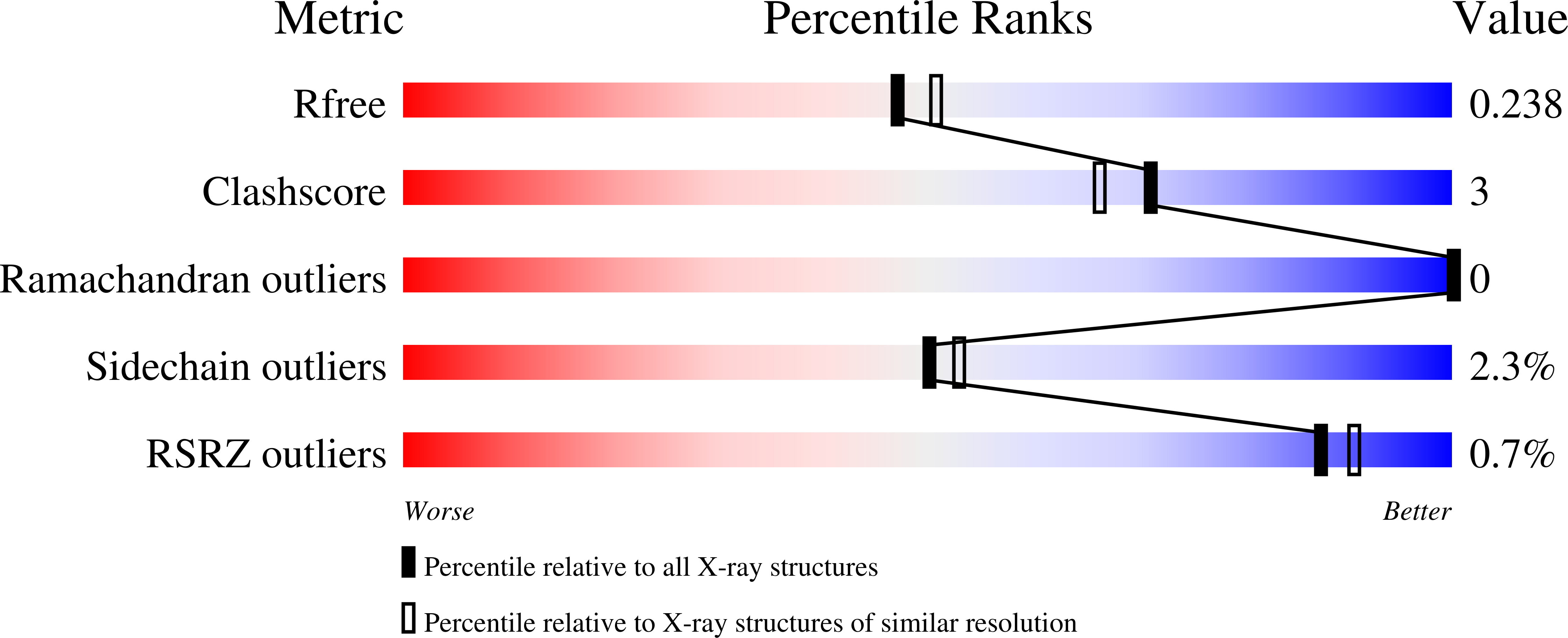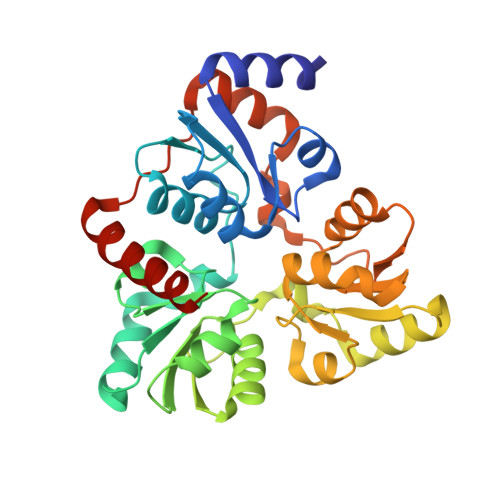An Unexpected Species Determined by X-ray Crystallography that May Represent an Intermediate in the Reaction Catalyzed by Quinolinate Synthase.
Esakova, O.A., Silakov, A., Grove, T.L., Warui, D.M., Yennawar, N.H., Booker, S.J.(2019) J Am Chem Soc 141: 14142-14151
- PubMed: 31390192
- DOI: https://doi.org/10.1021/jacs.9b02513
- Primary Citation of Related Structures:
6NSO, 6NSU, 6OR8, 6ORA - PubMed Abstract:
Quinolinic acid is a common intermediate in the biosynthesis of nicotinamide adenine dinucleotide and its derivatives in all organisms that synthesize the molecule de novo. In most prokaryotes, it is formed from the condensation of dihydroxyacetone phosphate (DHAP) and iminoaspartate (IA) by the action of quinolinate synthase (NadA). NadA contains a [4Fe-4S] cluster cofactor with a unique noncysteinyl-ligated iron ion (Fe a ), which is proposed to bind the hydroxyl group of an intermediate in its reaction to facilitate a dehydration step. However, direct evidence for this role in catalysis has yet to be provided, and the exact chemical mechanism that underlies this transformation remains elusive. Herein, we present a structure of NadA from Pyrococcus horikoshii (PhNadA) in complex with IA and show that a carboxylate group of the molecule is ligated to Fe a of the iron-sulfur cluster, occupying the site to which DHAP has been proposed to bind during catalysis. When crystals of PhNadA in complex with IA are soaked briefly in DHAP before freezing, electron density for a new molecule is observed, which we suggest is related to an intermediate in the reaction. Similar, but slightly different, "intermediates" are observed when crystals of a PhNadA Glu198Gln variant are incubated with DHAP, oxaloacetate, and ammonium chloride, conditions under which IA is formed chemically. Continuous-wave and pulse electron paramagnetic resonance techniques are used to verify the binding mode of substrates and proposed intermediates in frozen solution.
















